Boston Roll Sushi Recipe
on Apr 12, 2023, Updated Nov 21, 2023
This post may contain affiliate links. Please read my disclosure policy.
Boston Rolls are filled with creamy avocado, poached shrimp, and crunchy cucumber, then rolled in nori seaweed sheet and sushi rice! In this recipe, you will learn how to make sushi rice, how to select fillings, how to roll the sushi, and how to garnish with tobiko or masago!
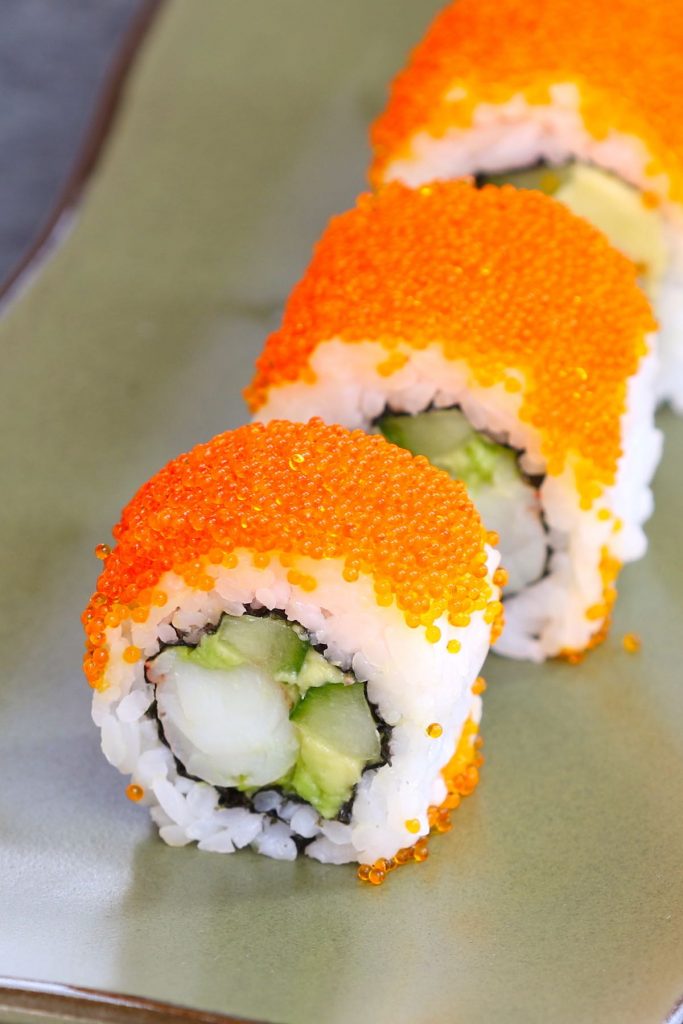
What is a Boston Roll?
Similar to the California Roll, Boston rolls are a type of maki sushi (rolled sushi) made by rolling ingredients in nori seaweed sheet and seasoned rice. Instead of imitation crab, poached shrimp is used in the Boston roll. It’s an inside-out sushi roll where the rice is on the outside and the nori is on the inside, wrapping the filling. It’s often garnished with the bright orange masago or tobiko (Japanese flying fish roe).
If you are not a fan of raw fish, this Boston roll is a good choice for you since it uses cooked shrimp instead of raw fish.
Although rolled sushi originates in Japan, Boston rolls are not. It’s an adapted sushi recipe in Eastern U.S. to pay respect to the Japanese root while celebrating shrimp fishery in Boston area.
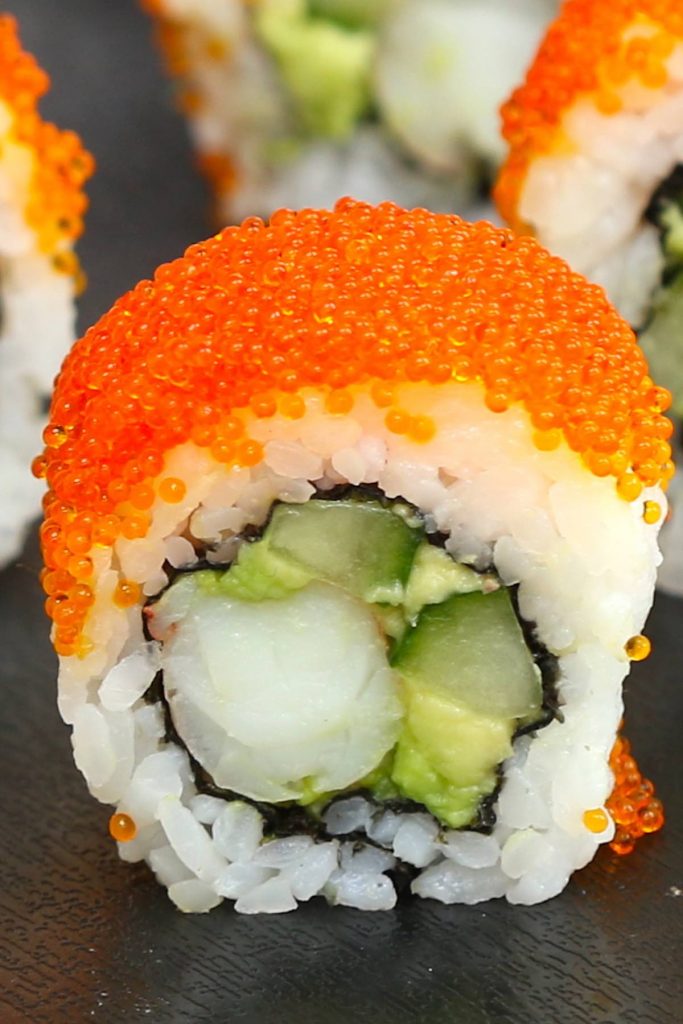
What is a Boston Roll made of?
Traditionally the fillings of a Boston roll include cooked shrimp, avocado, and cucumber. Some people use tempura shrimp, where the shrimp is dipped in the batter and then deep fried in hot oil. I like to use poached shrimp for a healthier and easier version but still full of flavors.
After the sushi is rolled up in seaweed sheet and rice, it’s best to spread some tobiko (flying fish roe) on top of the roll, giving it a vibrant orange color and crunchy texture. You can find it in local Japanese store or order online from amazon. Sometimes masago is used as a substitute.
You’ll also need a sushi rolling bamboo mat to make the sushi for the best result.
How to make Boston sushi roll
Cook the sushi rice
A great sushi roll starts with good sushi rice, which will stay fluffy even after it’s tightly rolled. So use high-quality short grain rice for this recipe. You’ll need to use less water than cooking the regular rice. The best water to rice ratio is 1:1 (or use 1.2:1 if you prefer softer rice).
Once cooked, transfer the hot rice to a large bowl and let it cool down slightly. When it’s still very warm, stir in the sushi vinegar (the mixture of rice vinegar, sugar, and salt) and mix gently.
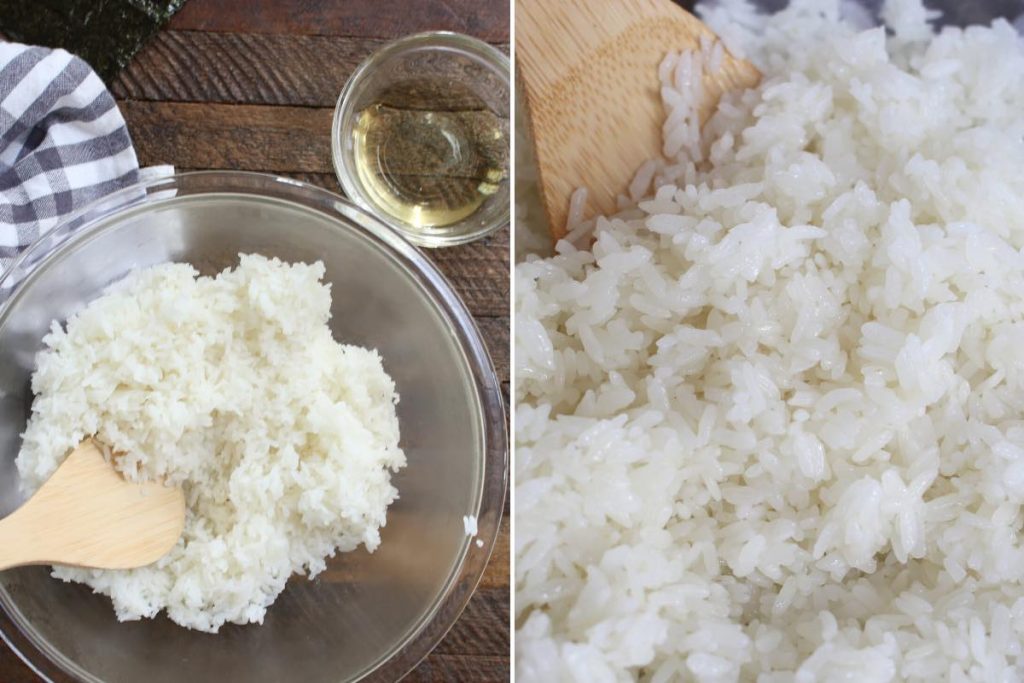
Poach the shrimp
Bring a pot of water to a boil, then add salt (you can also add other seasonings such as parsley, wine and lemon juice). When the water is boiling, add shrimp, cover the pot and remove from heat. Let stand until shrimp are cooked through, about 3-5 minutes.
Transfer poached shrimp to a bowl of ice water to stop the cooking process. Drain, peel the shrimp, and remove the tails.
Roll sushi gently but tightly
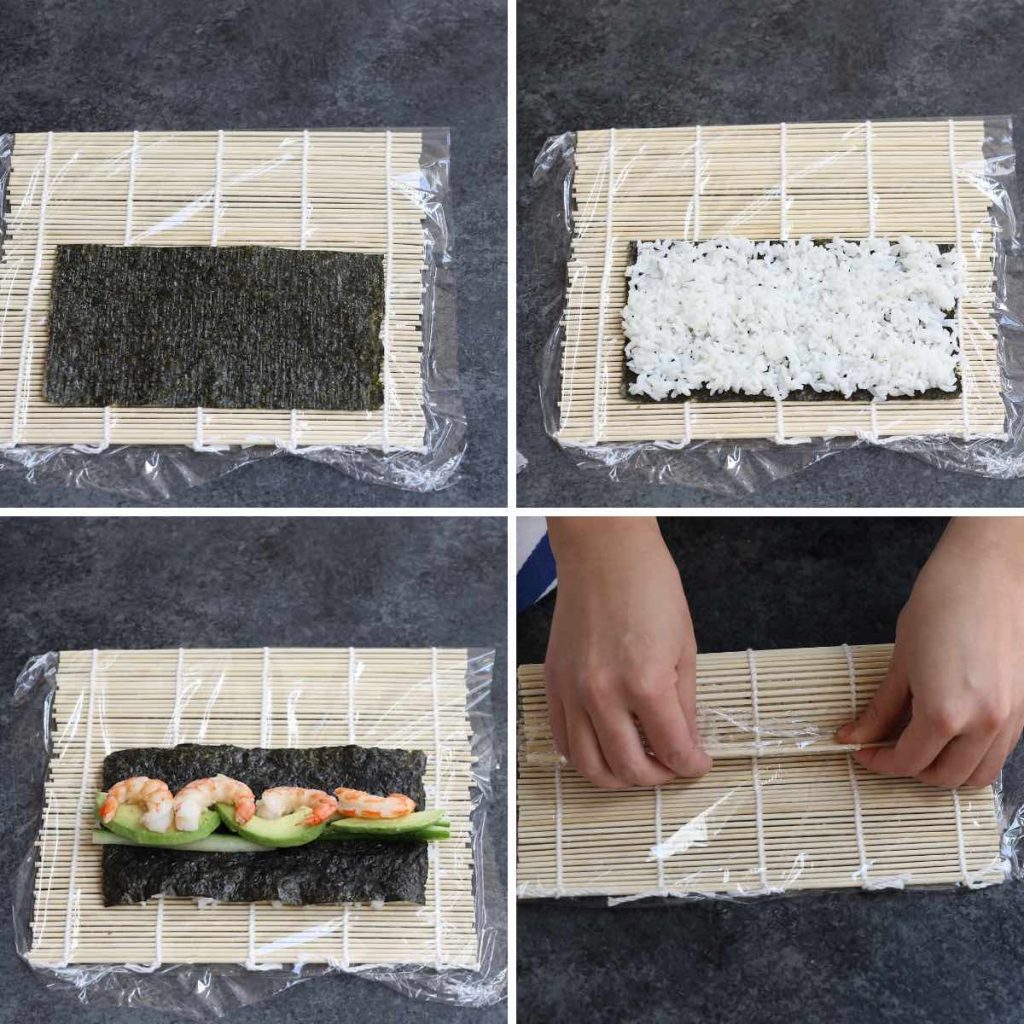
For this recipe, the rice is on the outside, covering the nori and fillings. You’ll need half of a nori sheet for one roll.
First lay out your bamboo mat with a piece of plastic wrap on top (this will keep the mat clean and avoid the rice from sticking to the mat). Then place half of the nori sheet on top of the bamboo, with shining side facing down. Evenly spread rice (about 3/4 cup) over nori. Then flip the sheet and add the fillings to the middle of the nori sheet.
Place the thumbs underneath the bamboo mat and lift the edge up and over the filling. Roll the bamboo mat away from you and press the rice and filling together. Keep rolling until the ends meet.
Then add tobiko on top of the roll for a bright orange color and crunchy texture!
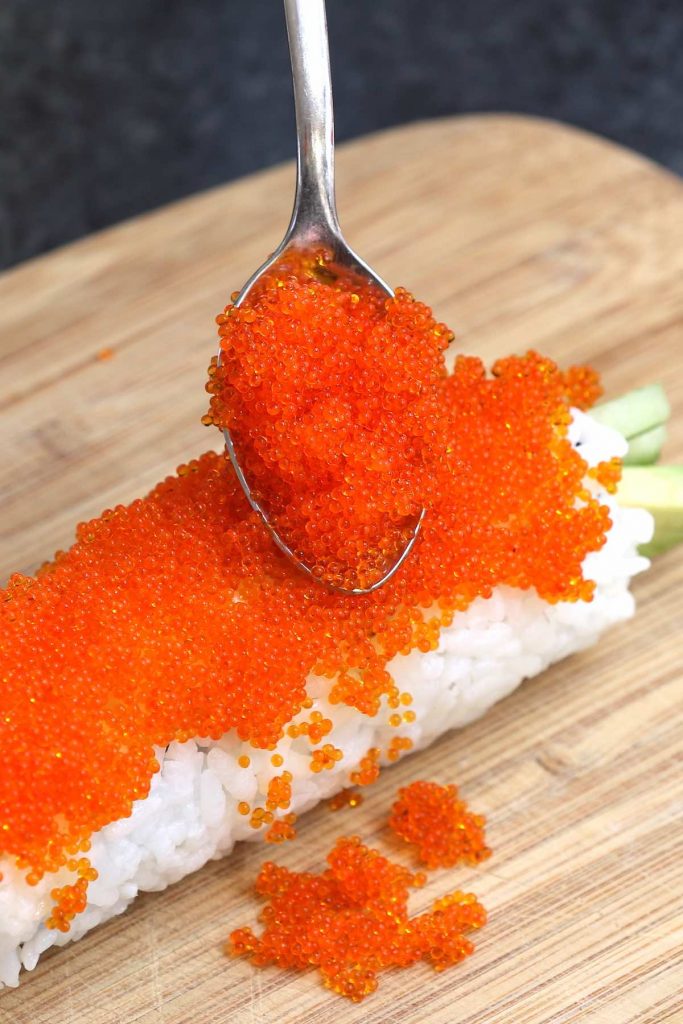
Frequently asked questions:
How to select nori sheets?
Best nori sheets have black color with a slightly green hue. They should have the same thickness without any holes. The fresh ones are crisp and easy to break when folding in half.
What kind of shrimp to use?
You can use either fresh, thawed, or frozen shrimp for this recipe. Make sure to devein and peel before adding to the roll. Smaller size works better, and if yours are too big, you can halve the shrimp lengthwise.
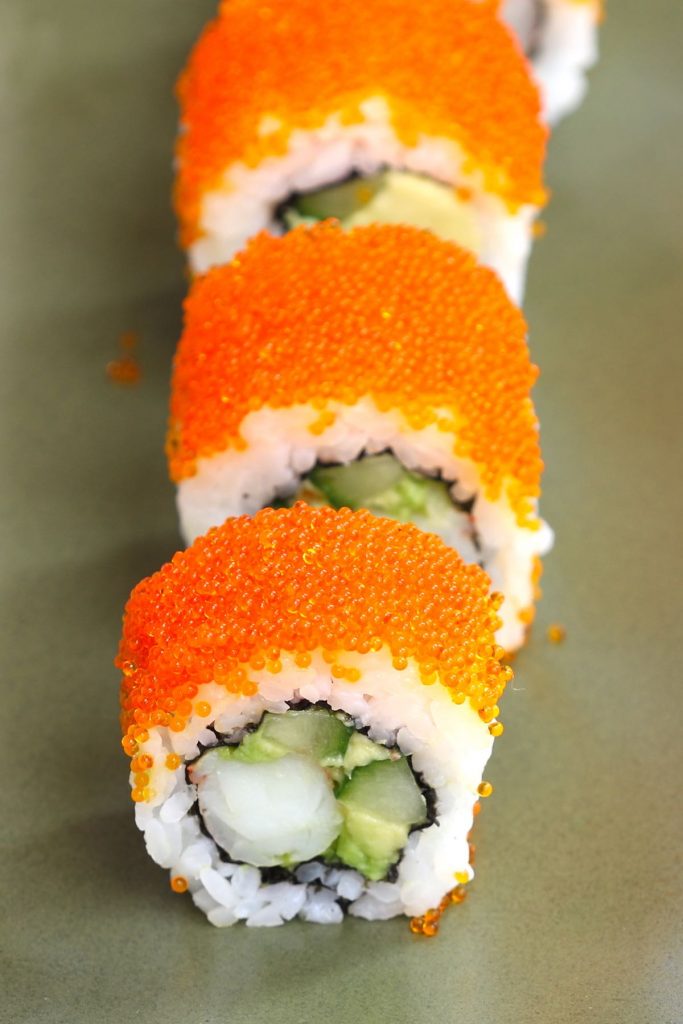
How to select avocado?
You’ll want ripe avocados which are still firm. The dark color of the skin is a good indicator that the avocado is ripe and ready to eat. Also, you can try to remove the stem and take a look at the navel. If it’s too hard to remove, it also means the avocado is not ripe enough.
Other Sushi Roll Recipes Without Raw Fish:
I hope you like this recipe. If you try it, please comment below and let me know how it turns out!
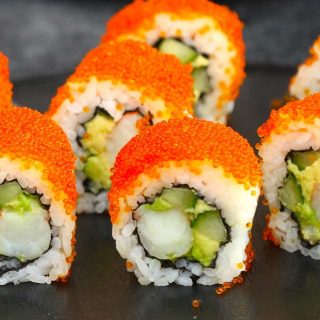
Best Boston Roll Recipe
Ingredients
For Sushi Rice
- 1 cup sushi rice, short grain sushi rice
- 1 cup water
- 1 ½ tablespoons sushi vinegar (optional), or mixing 1 tablespoons rice vinegar, 1/2 tablespoon sugar, and 1/2 teaspoon salt
For Boston Sushi
Optional for Serving:
- soy sauce
- wasabi paste
Instructions
- Cook Sushi Rice: Wash the rice and add it to the rice cooker together with water. Once cooked, transfer to a large bowl and let it cool down slightly. When it’s still very warm, stir in the sushi vinegar (or the mixture of rice vinegar, sugar and salt) and mix well.
- Poach Shrimp: Bring a pot of water to a boil, then sprinkle a pinch of salt. Add shrimp, cover the pot and remove from heat. Let stand until shrimp are cooked through, about 3-5 minutes. Transfer poached shrimp to a bowl of ice water to stop the cooking process. Drain, peel the shrimp, and remove the tails.
- Make Boston Sushi Roll: Lay out the bamboo mat with a piece of plastic wrap on top (this will make clean up easier and prevent rice from sticking to the bamboo).
- Fold the nori sheets in half and split them using a pair of scissors.
- Place half of the nori towards the bottom of the mat.
- Lightly wet your hands and take about 3/4 cup of cooked rice. (You can dip your hands in vinegar water to prevent sticking*.) Gently spread the rice out to the edges in a thin even layer. Don’t use too much pressure, or you’ll end up with mushy rice.
- Flip the rice and nori over so that the rice is on the bottom and the nori is facing up.
- Place shrimp, avocado, and cucumber on top of the nori. Make sure not to add too much fillings or your roll won’t seal properly.
- Place the thumbs underneath the bamboo mat and lift the edge up and over the filling.
- Roll the bamboo mat away from you and apply some pressure to tighten it up. Keep rolling until the ends meet.
- Remove the bamboo mat, and spread tobiko on to top of the roll.
- Place plastic wrap on top, and cover with the sushi mat. Squeeze gently to press the tobiko around the roll.
- Remove the bamboo mat while keeping the plastic wrap. Slice the roll into 8 bite-size pieces. Remove the plastic wrap from each piece. Serve and enjoy!
Notes
- * Tezu water for dipping hands: Mix together 1/4 cup water and 2 teaspoon rice vinegar.
- Don’t put warm sushi rice to the fridge to cool down as this will affect the taste and texture.
- Why does my sushi roll fall apart? This could be caused by wrong types of rice you use or you didn’t squeeze the rolls tightly enough. You need to tuck in and pull the bamboo mat while rolling.
Nutrition
Nutrition information provided is an estimate only and will vary based on ingredient brands and cooking methods used.
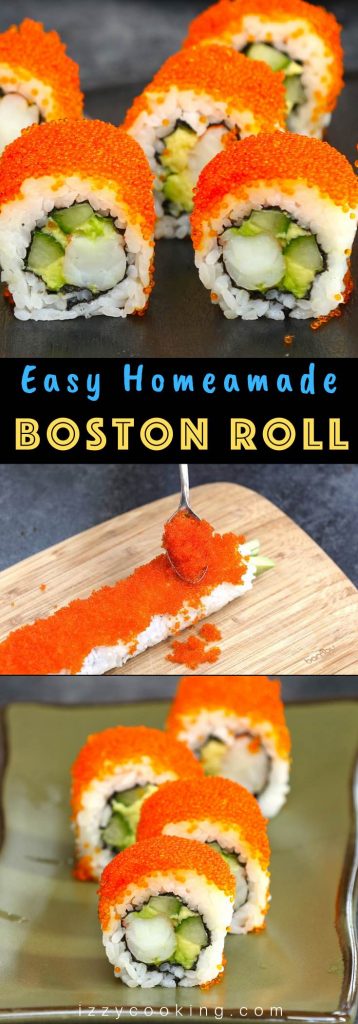
Editor note: Originally published March 24, 2020 and updated June 24, 2020.
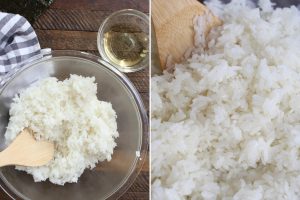
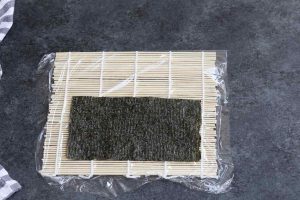
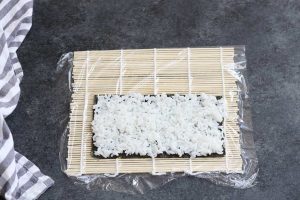
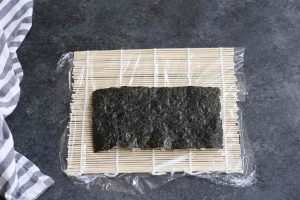
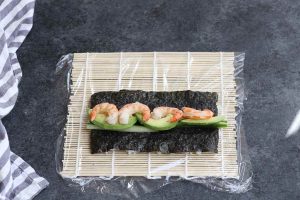
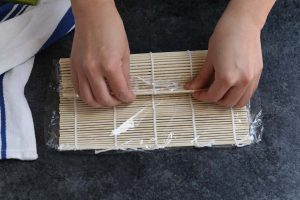
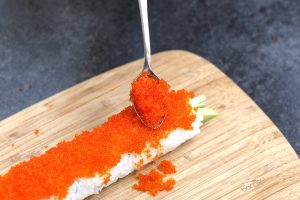
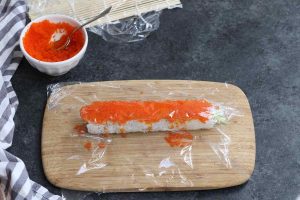
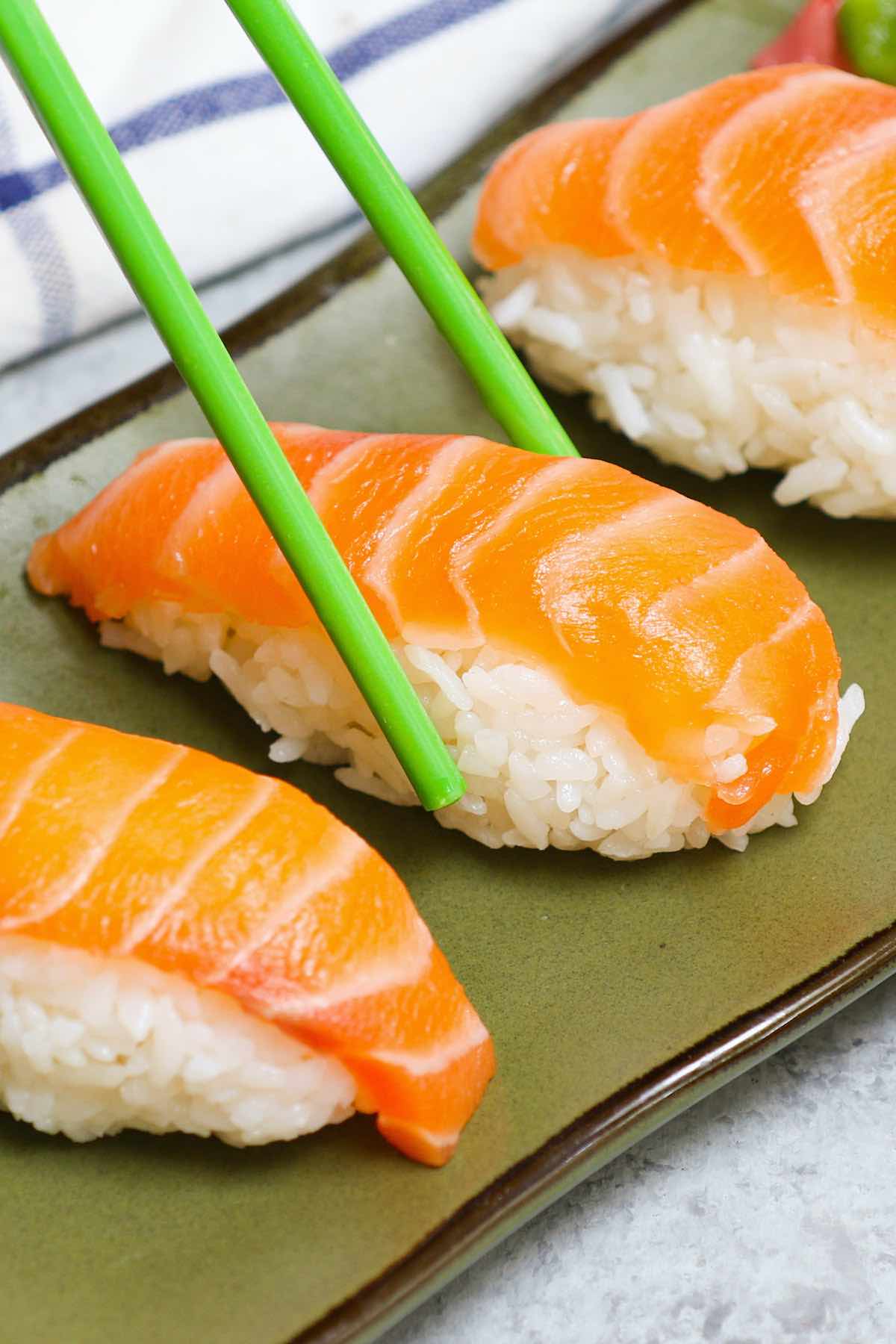
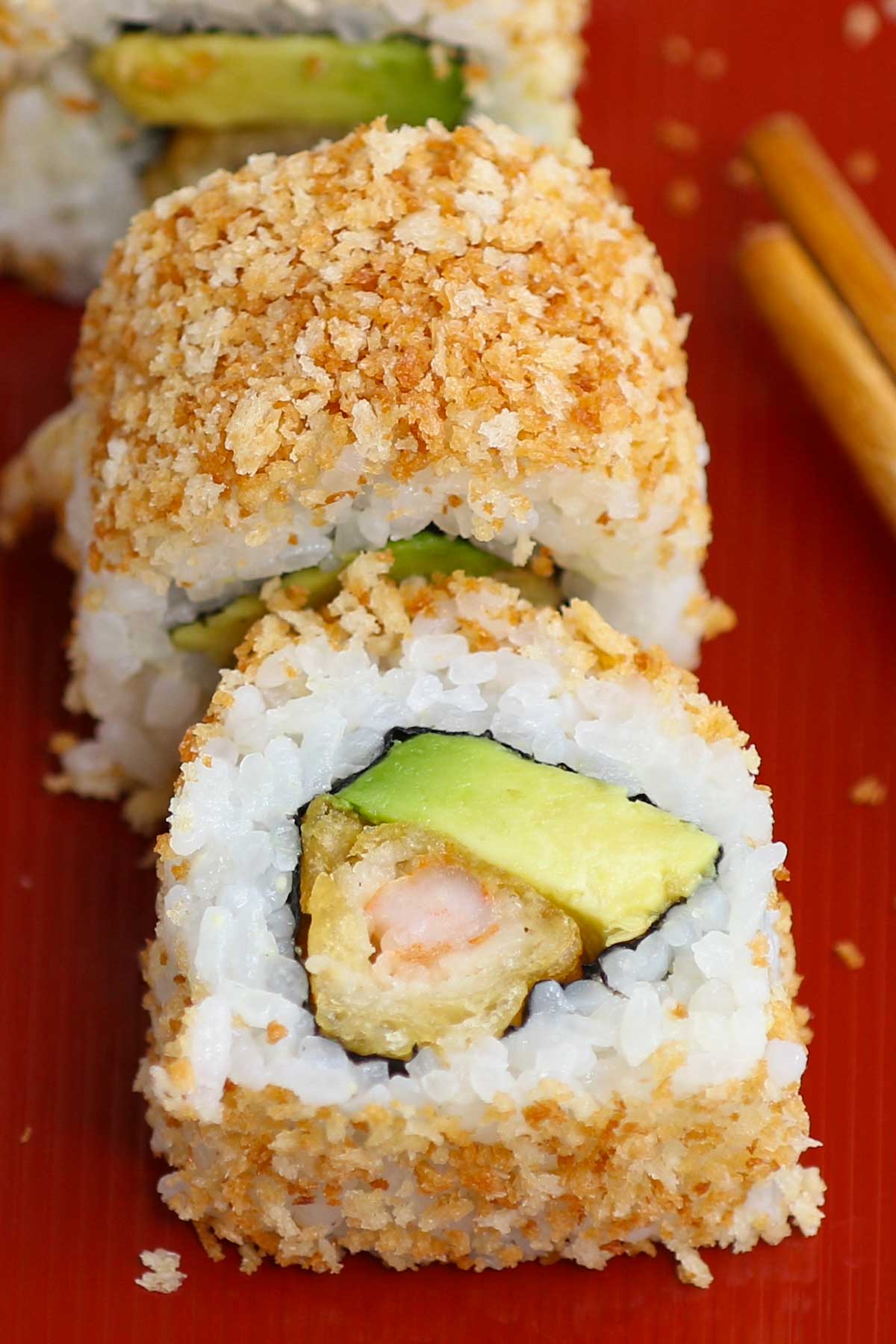
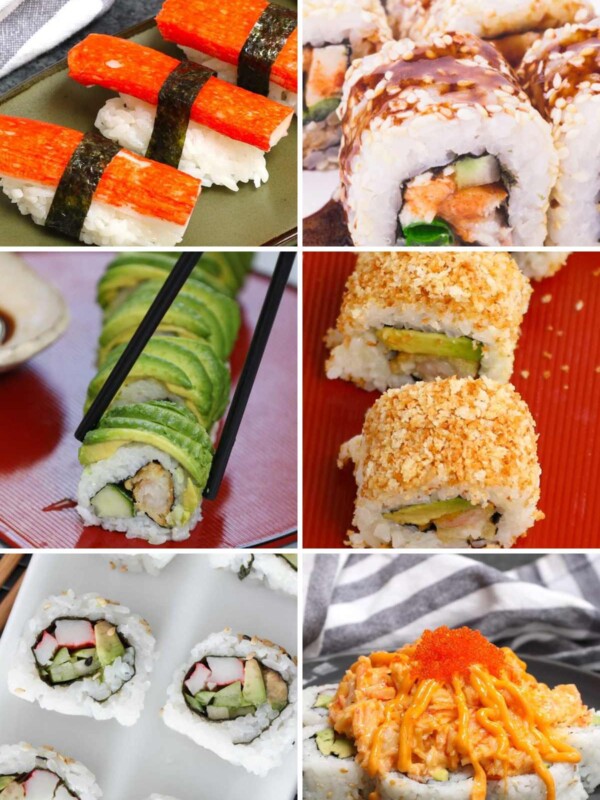
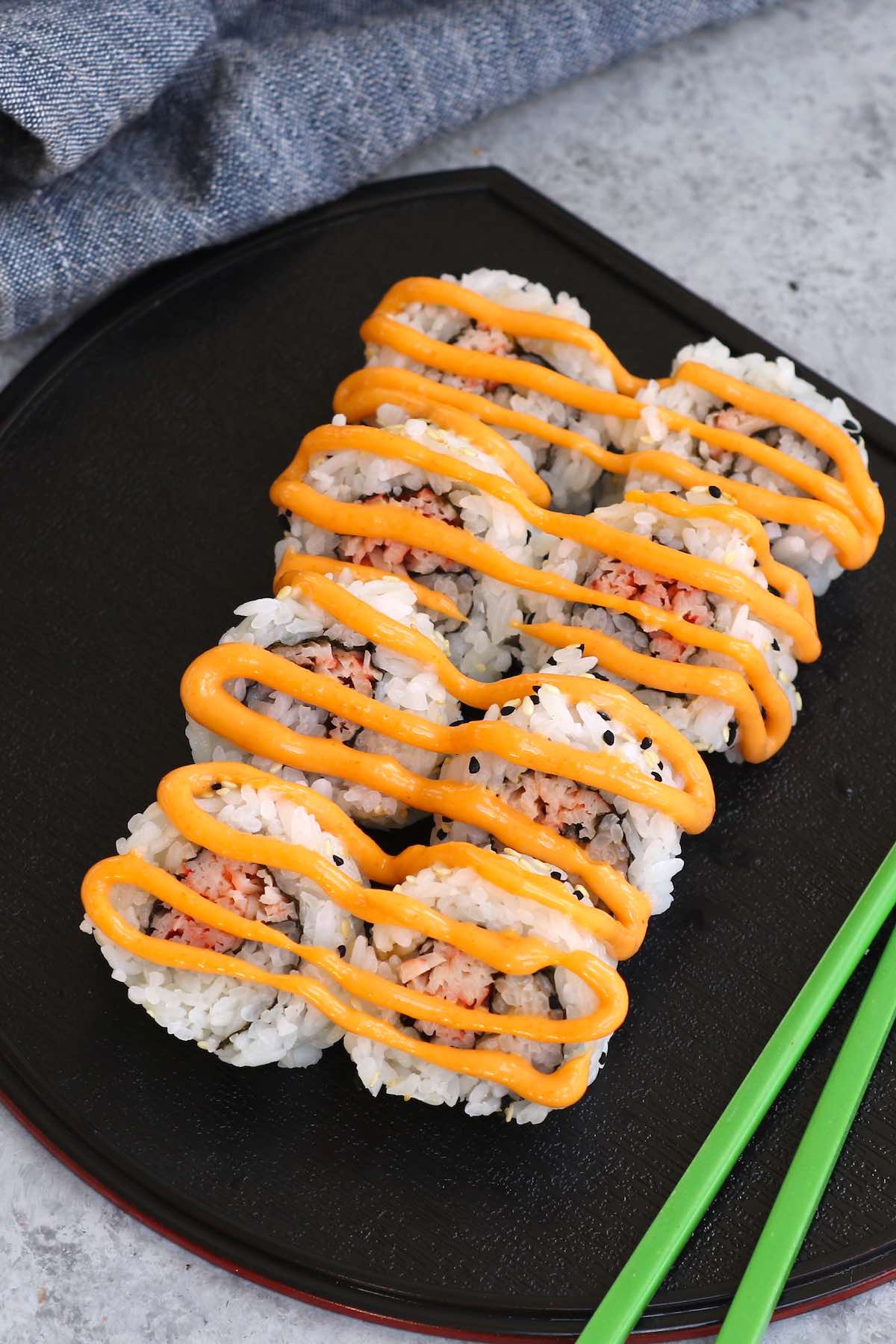
It’s been so long since I made my last sushi so thank you for this delicious reminder! What a perfectly tasty treat for summer!
My husband has already asked when I am making this again! So good!
Glad your family likes it. Thanks, Brandy.